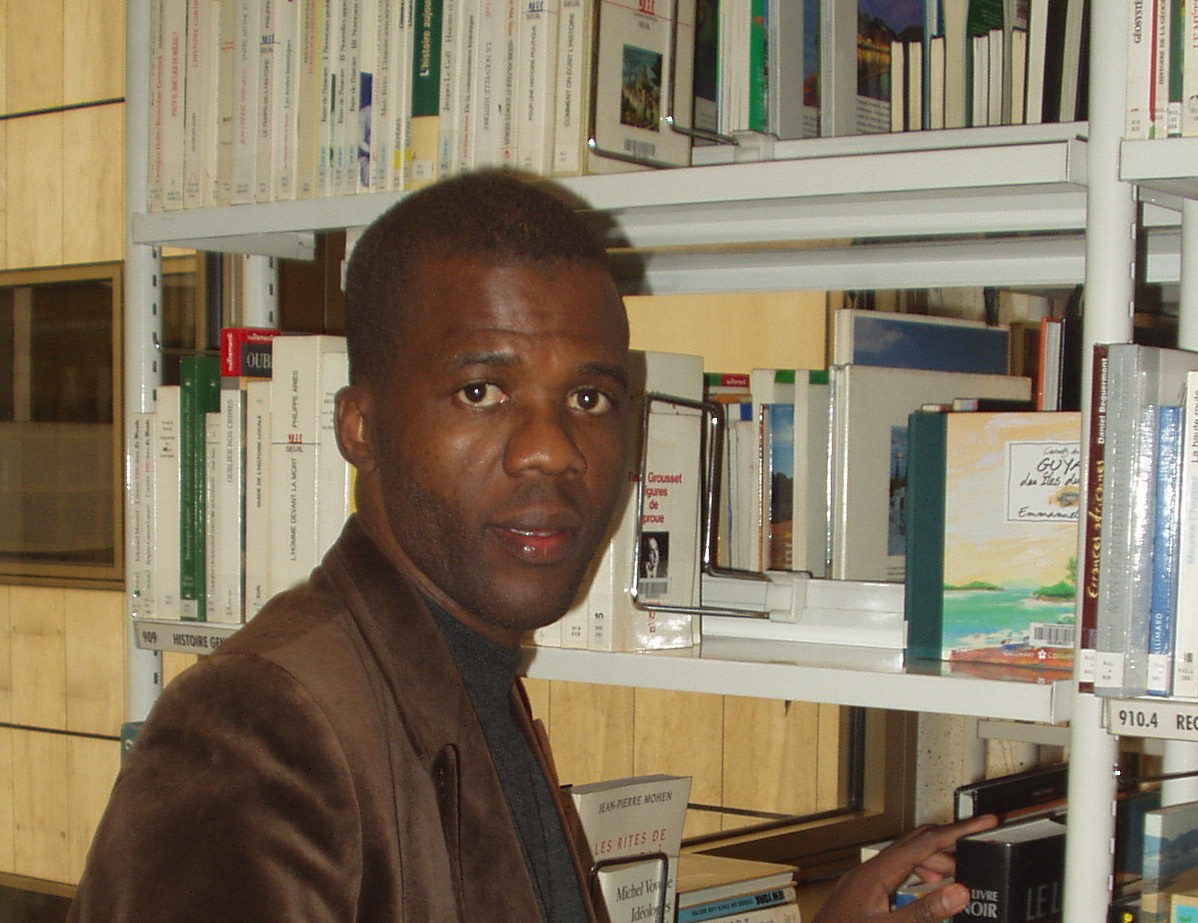Researcher of the Month – July 2022, Dr Aurélien Mokoko Gampiot

Dr Aurélien Mokoko Gampiot is a Research Associate on the Archiving the Inner City Project (funded by the Leverhulme Trust) at the Department of Sociology of the University of York. He is also a Visiting Research Fellow at the Centre for Religion and Public Life of the University of Leeds.
Tell us a little about your ‘research journey’ – how did you get to where you are right now?
I am a sociologist, specialising in African religions and the African diaspora. Since earning my PhD at the University of Rennes 2 (France), I have widely published on Kimbanguism, a major African initiated church that originates from the country now known as the Democratic Republic of Congo. My latest book, Kimbanguism: An African Understanding of the Bible, was published by Pennsylvania State University Press in 2017 and is available in Open Access. My forthcoming book discusses Black Jews in France. My research interests are centered on the interplay between religion, race, and gender in African and diasporic communities in Europe and North America.
Right now, I am a Research Associate on the team of the Archiving the Inner City Project (funded by the Leverhulme Trust) at the Department of Sociology of the University of York. As a resident of Leeds, I was impressed by the cosmopolitan nature of the city and I decided to study African churches in Leeds as a side-project. So, I reached out to Adriaan Van Klinken, who invited me as a visiting Research fellow of the Centre for Religion and Public Life.
Who, or what, sparked your interest to work on your particular research area?
Recent waves of migration from Sub-Saharan Africa have resulted in the presence of sizable African communities in Leeds, as in many other cities across the UK. Among these communities, African Pentecostal and Evangelical churches have become increasingly visible and drawn my attention as a sociologist of African religions and migration. There are several African churches in Leeds but my fieldwork is limited to Francophone African churches. This choice is due to the fact I am a native of Congo and a native speaker of several languages spoken in Central Africa, not to mention my familiarity with the history and cultures of the region. My work discusses the Congolese religious landscape and its diaspora on the European and American continents, but I had not yet explored this diaspora in the UK. I found a dozen Francophone African churches based in the Beeston Road area and the industrial areas of Leeds. French-speaking African churches in Leeds are a fascinating phenomenon and deserve a place in the study of religious and migratory phenomena.
What are you currently, or about to start, working on?
My approach consists in exploring the links between religions and migrations in a variety of specific environments. I am observing communities as a participant and conduct semi-directive sociological interviews with members and leaders of these organizations, with a specific focus on women’s issues and empowerment whenever it is possible to interview female clergy or members. The Francophone African Churches I chose to study are divided into two categories: on the one hand is the Abundant Faith Church, whose members hail from Cameroon and the Ivory Coast and the other hand are the Churches such as Ark of Victory (Arche de la Victoire), Eglise Source abandante (Abundant Source Church) or Bethesda Church, gathering members from the Democratic Republic of Congo, Congo-Brazzaville, and Angola. My study analyzes their religious activities (worship services, religious feasts, weddings, etc.) and their social experiences in Leeds. What stances do these churches take as they negotiate the value systems from the home countries and that of the U.K host society?
In what way(s) do you feel your research examines the role of religion in public life and the relationship between the two?
Because my research examines on the one hand the transnational dynamics of religious globalization in Western host societies and on the other hand the contemporary evolutions of African diasporic communities, I constantly discuss the relations between African religious communities with strongly collective dynamics and public life in secularised, Western societies. This approach has become increasingly intersectional as I have diversified my fieldwork from Central Africa to France, to Boston (USA), and now Leeds (UK). Relations between religious practices and public life exhibit different sets of constraints, but also different forms of creativity from one urban context to another. These relations, in turn, vary when gender roles and generational specificities are considered as shaping the forms of agency of the groups under study: women’s rights, health care concerns, legal status concerns, or bilingualism imply transformations of power relations within the congregations but also evolutions in the ways these groups interact with other faith-based organisations and public authorities. A previous fieldwork project I conducted in Kinshasa (2017-2019) as a Research Associate for the British Academy/GCRF funded project ‘Religious Urbanization in Africa’ (RUA), led by the Department of Sociology of the University of Kent, examined how urban infrastructures are increasingly being provided by religious organizations, aiming to assess the impact of faith-based and secular NGOs working for development in matters of health and education. I am confident the new research I am conducting in Leeds will offer insights into these questions.
